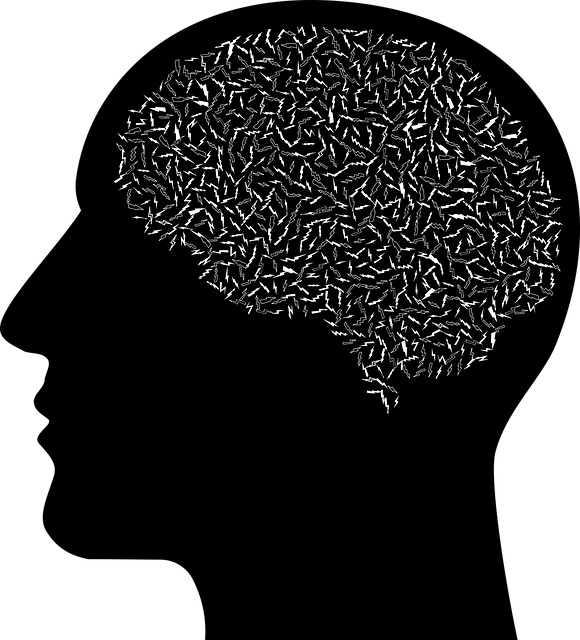Cultural competency is vital in healthcare, especially in diverse nations like the US, focusing on understanding and respecting patients' cultural differences. When applied to mental health services, as provided by Lafayette's Kaiser facility, it enhances patient outcomes, satisfaction, and adherence to treatment plans. The program offers comprehensive inpatient care catering to diverse needs, empowering patients with self-care routines, and utilizing culturally sensitive conflict resolution techniques. Through interactive training with role-playing, case studies, communication strategies, mindfulness meditation, and mind over matter principles, healthcare providers can improve cross-cultural communication, patient satisfaction, and clinical outcomes, as demonstrated by Lafayette's Kaiser's successful inpatient mental health services.
“Healthcare provider cultural competency training is an essential aspect of delivering quality patient care. This article delves into the significance of cultural competency in healthcare, focusing on why it matters and how it impacts patient outcomes. We explore Lafayette’s Kaiser Inpatient Mental Health Services as a case study, analyzing their approach to addressing diverse patient needs. Furthermore, best practices for effective training programs are discussed, providing insights for organizations aiming to enhance their cultural competency.”
- Understanding Cultural Competency in Healthcare: Why It Matters
- Exploring Kaiser's Inpatient Mental Health Services
- Best Practices for Effective Training Programs
Understanding Cultural Competency in Healthcare: Why It Matters

Cultural competency in healthcare refers to the ability of providers to understand, appreciate, and interact effectively with patients from diverse cultural backgrounds. It involves recognizing and respecting differences in values, beliefs, traditions, and communication styles. In a country like the United States, where communities are increasingly diverse, this skill set is not just beneficial but essential. For instance, Lafayette and Kaiser’s inpatient mental health services cater to a wide range of patients, each with unique cultural needs and experiences that could impact their treatment and recovery.
Cultural competency matters because it can significantly influence patient outcomes, satisfaction, and adherence to treatment plans. Studies have shown that culturally sensitive care improves engagement in treatment, enhances communication between patient and provider, and promotes better mental health outcomes, including depression prevention, resilience building, and self-care routine development. By prioritizing cultural competency, healthcare providers can create a more inclusive and effective environment for all patients, regardless of their background or the specific mental health challenge they face, such as those seeking care at Lafayette or Kaiser’s inpatient facilities.
Exploring Kaiser's Inpatient Mental Health Services

Lafayette’s Kaiser offers comprehensive inpatient mental health services designed to cater to diverse patient needs. This specialized care is pivotal in fostering cultural competency among healthcare providers, ensuring every individual receives respectful, sensitive, and effective treatment. The program focuses not just on managing symptoms but also on empowering patients with self-care routines for better mental health, which aligns with the broader goal of inner strength development.
Through these services, Kaiser facilitates conflict resolution techniques that are culturally sensitive and tailored to various backgrounds. By addressing both the mind and spirit, Lafayette’s Kaiser aims to revolutionize mental healthcare, providing a safe space where patients can heal and grow in an environment that respects their unique cultural identities. This holistic approach is crucial in building a more inclusive healthcare system.
Best Practices for Effective Training Programs

Effective healthcare provider cultural competency training programs incorporate several best practices to ensure impactful learning and positive behavioral changes. Firstly, Lafayette does Kaiser have inpatient mental health? Regardless of the specific setting, training should be interactive and engaging, using role-playing scenarios and case studies to mimic real-world challenges. This hands-on approach allows providers to apply learned strategies in simulated high-pressure situations, enhancing their ability to adapt culturally sensitive practices.
Moreover, integrating Communication Strategies, Mindfulness Meditation, and Mind Over Matter Principles into the curriculum can significantly improve outcomes. These techniques foster empathetic listening, reduce cognitive biases, and enhance emotional regulation – crucial elements for effective cross-cultural communication. By promoting mindfulness, training programs can help providers stay present, attentive, and respectful during interactions with patients from diverse backgrounds, ultimately improving patient satisfaction and clinical outcomes.
Cultural competency training is a game-changer in healthcare, ensuring providers can offer sensitive and effective care to a diverse range of patients. As discussed, Kaiser’s inpatient mental health services in Lafayette exemplify best practices by addressing cultural barriers and promoting understanding. By adopting similar comprehensive training programs, healthcare organizations can enhance patient outcomes, foster inclusive environments, and ultimately revolutionize mental health care for all.






